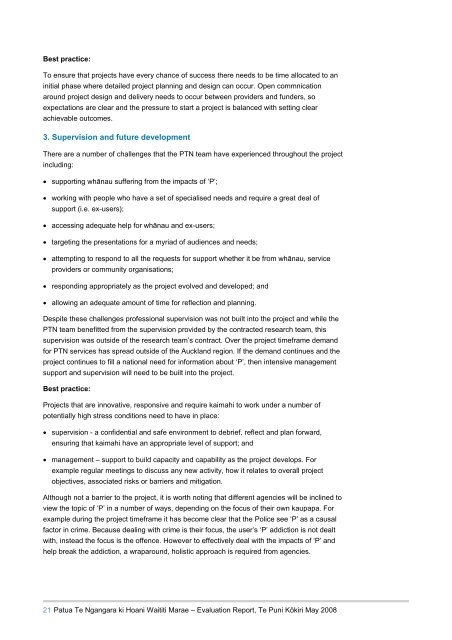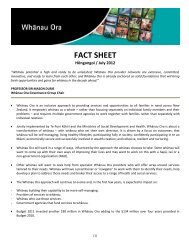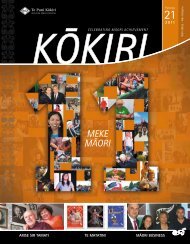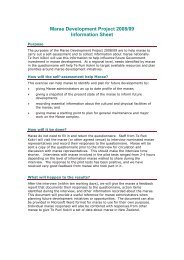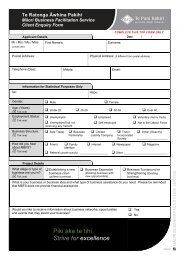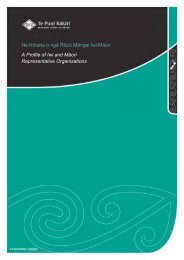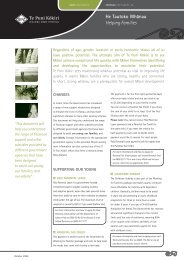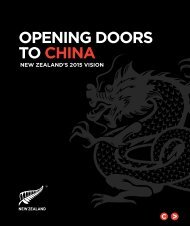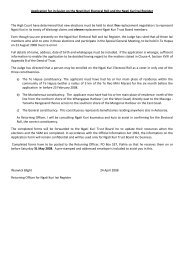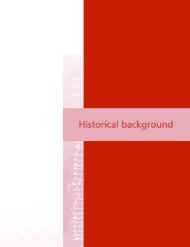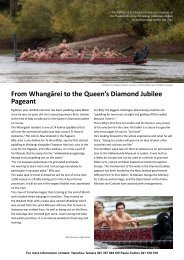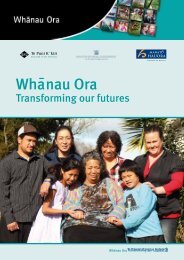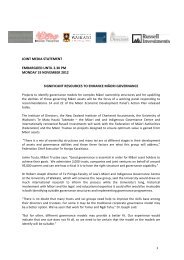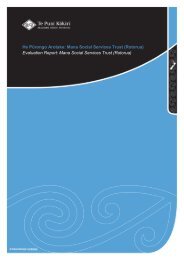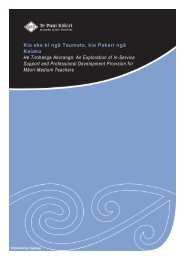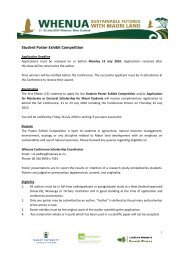Evaluation Report: Hoani Waititi Marae: PDF 1.4MB - Te Puni Kokiri
Evaluation Report: Hoani Waititi Marae: PDF 1.4MB - Te Puni Kokiri
Evaluation Report: Hoani Waititi Marae: PDF 1.4MB - Te Puni Kokiri
You also want an ePaper? Increase the reach of your titles
YUMPU automatically turns print PDFs into web optimized ePapers that Google loves.
Best practice:<br />
To ensure that projects have every chance of success there needs to be time allocated to an<br />
initial phase where detailed project planning and design can occur. Open commnication<br />
around project design and delivery needs to occur between providers and funders, so<br />
expectations are clear and the pressure to start a project is balanced with setting clear<br />
achievable outcomes.<br />
3. Supervision and future development<br />
There are a number of challenges that the PTN team have experienced throughout the project<br />
including:<br />
supporting whānau suffering from the impacts of „P‟;<br />
working with people who have a set of specialised needs and require a great deal of<br />
support (i.e. ex-users);<br />
accessing adequate help for whānau and ex-users;<br />
targeting the presentations for a myriad of audiences and needs;<br />
attempting to respond to all the requests for support whether it be from whānau, service<br />
providers or community organisations;<br />
responding appropriately as the project evolved and developed; and<br />
allowing an adequate amount of time for reflection and planning.<br />
Despite these challenges professional supervision was not built into the project and while the<br />
PTN team benefitted from the supervision provided by the contracted research team, this<br />
supervision was outside of the research team‟s contract. Over the project timeframe demand<br />
for PTN services has spread outside of the Auckland region. If the demand continues and the<br />
project continues to fill a national need for information about „P‟, then intensive management<br />
support and supervision will need to be built into the project.<br />
Best practice:<br />
Projects that are innovative, responsive and require kaimahi to work under a number of<br />
potentially high stress conditions need to have in place:<br />
supervision - a confidential and safe environment to debrief, reflect and plan forward,<br />
ensuring that kaimahi have an appropriate level of support; and<br />
management – support to build capacity and capability as the project develops. For<br />
example regular meetings to discuss any new activity, how it relates to overall project<br />
objectives, associated risks or barriers and mitigation.<br />
Although not a barrier to the project, it is worth noting that different agencies will be inclined to<br />
view the topic of „P‟ in a number of ways, depending on the focus of their own kaupapa. For<br />
example during the project timeframe it has become clear that the Police see „P‟ as a causal<br />
factor in crime. Because dealing with crime is their focus, the user‟s „P‟ addiction is not dealt<br />
with, instead the focus is the offence. However to effectively deal with the impacts of „P‟ and<br />
help break the addiction, a wraparound, holistic approach is required from agencies.<br />
21 Patua <strong>Te</strong> Ngangara ki <strong>Hoani</strong> <strong>Waititi</strong> <strong>Marae</strong> – <strong>Evaluation</strong> <strong>Report</strong>, <strong>Te</strong> <strong>Puni</strong> Kōkiri May 2008


